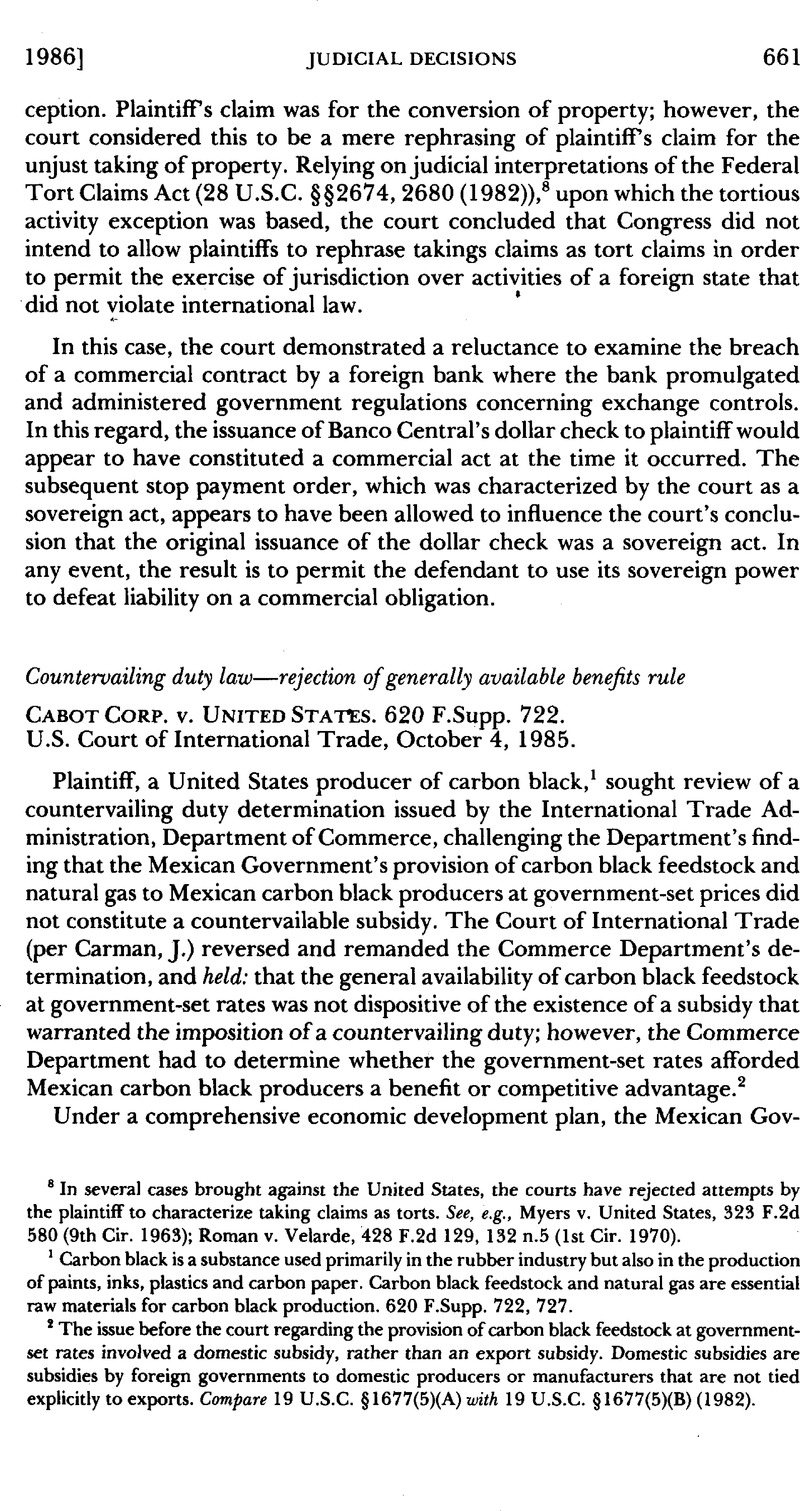No CrossRef data available.
Published online by Cambridge University Press: 27 February 2017

1 Carbon black is a substance used primarily in the rubber industry but also in the production of paints, inks, plastics and carbon paper. Carbon black feedstock and natural gas are essential raw materials for carbon black production. 620 F.Supp. 722, 727.
2 The issue before the court regarding the provision of carbon black feedstock at government-set rates involved a domestic subsidy, rather than an export subsidy. Domestic subsidies are subsidies by foreign governments to domestic producers or manufacturers that are not tied explicitly to exports. Compare 19 U.S.C. §1677(5)(A) with 19 U.S.C. §1677(5)(B) (1982).
3 The “generally available benefits rule,” which evolved within the Commerce Department, was adopted by the Court of International Trade in Carlisle Tire & Rubber Co. v. United States, 564 F.Supp. 834 (Ct. Int’l Trade 1983). Under this rule, government-provided benefits or subsidies that are generally available to all companies or industries within that government’s economy are not countervailable. Two other decisions of the court, however, have rejected the rule as contrary to the countervailing duty statutes. Agrexco, Agricultural Export Co. v. United States, 604 F.Supp. 1238 (Ct. Int’l Trade 1985); Bethlehem Steel Corp. v. United States, 590 F.Supp. 1237 (Ct. Int’l Trade 1984).
4 620 F.Supp. at 730.
5 Id. at 731.
6 Id. (emphasis in original).
7 Id. at 732.
8 Id. The court observed in passing that in connection with both domestic and export subsidies, “a bounty or grant is a benefit which gives rise to a ‘competitive advantage’.” Id. at 729.
9 Id. at 732. The court rejected plaintiff’s argument that “a price below the world market price is a per se countervailable benefit,” finding that “[t]he availability of inputs at low prices to foreign producers may be the result of various non-countervailable factors such as comparative advantage.” Id. at 733 n.9. For example, the close relationship between the carbon black producers and the Mexican government entity could permit the Government to sell oil byproducts that would otherwise go unsold. Id.
10 Id. at 730.